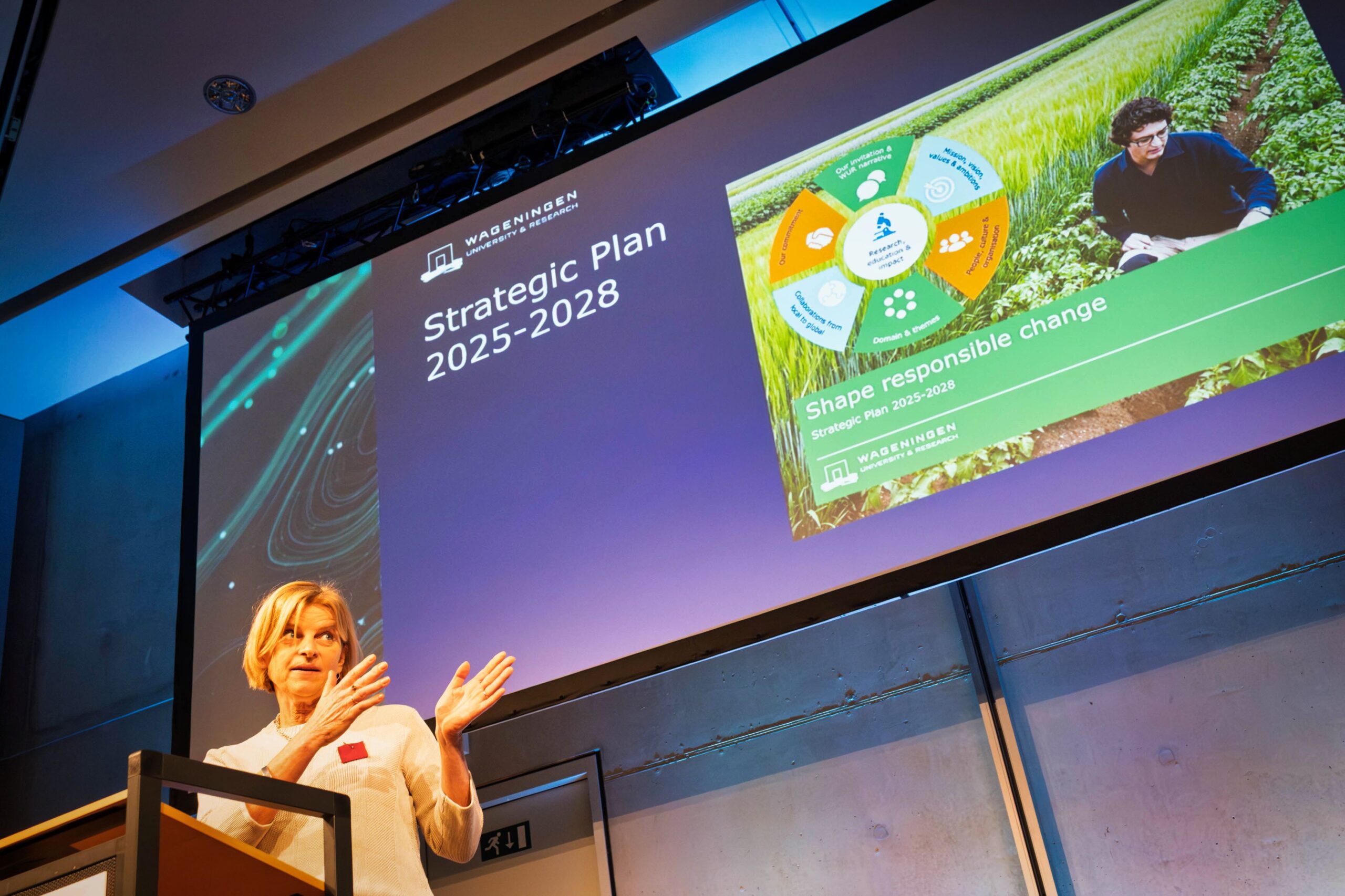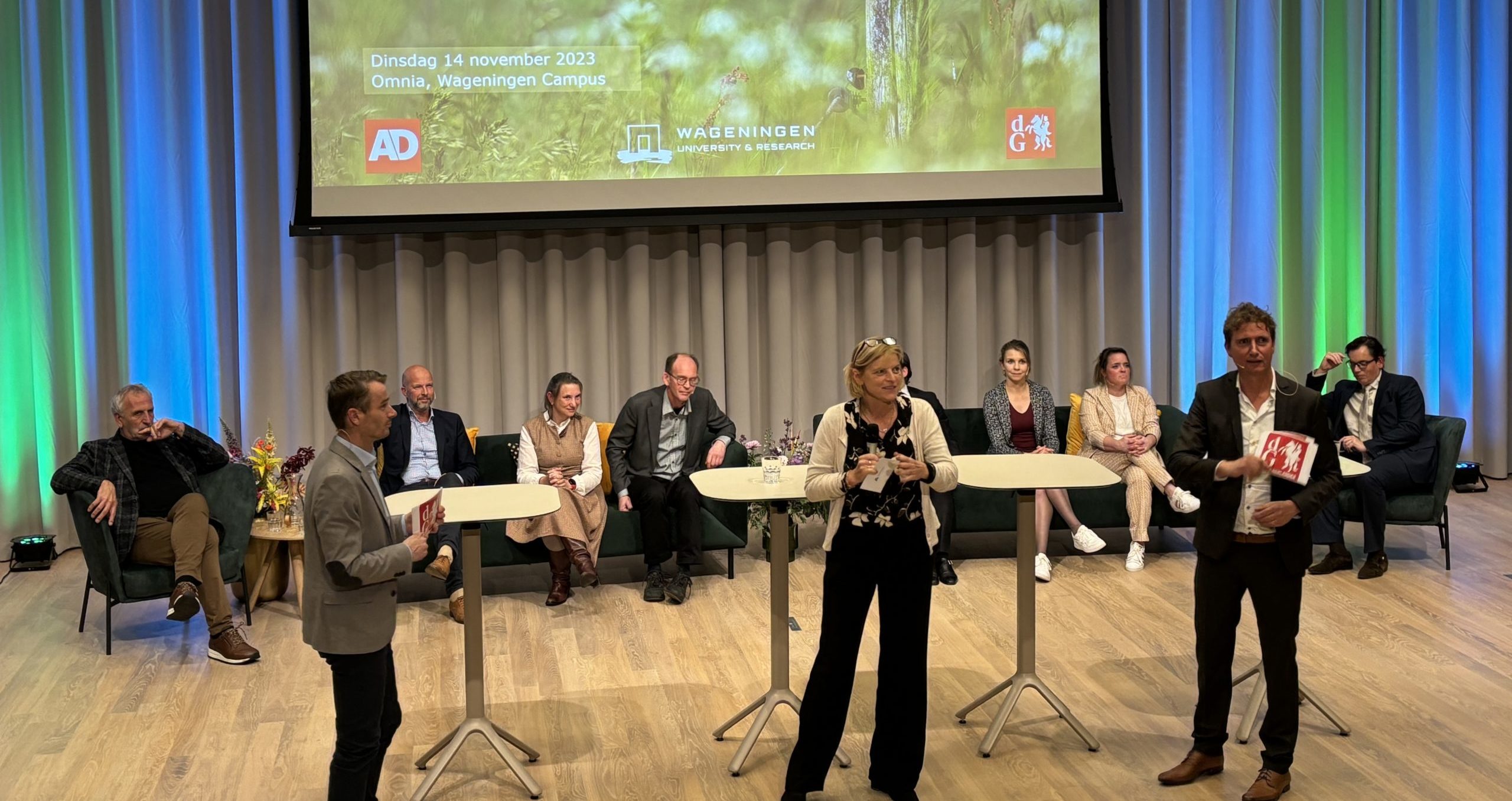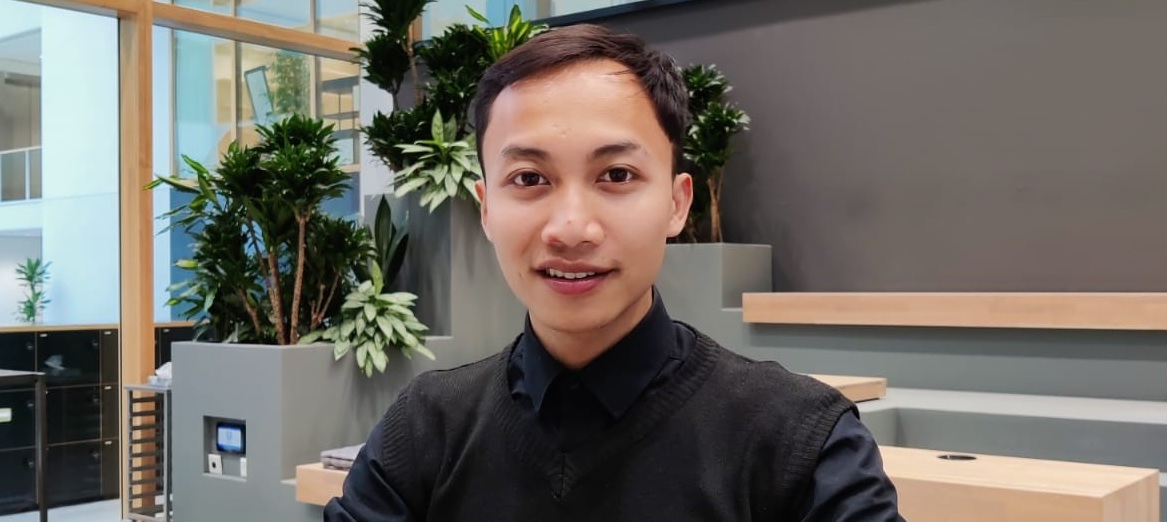Wanted: brave leaders with vision. That is Wageningen University & Research president Sjoukje Heimovaara’s wish for the outcome of next week’s elections. This vision must be related to the domain of agriculture and nature. ‘Farmers are willing to invest, but to do so, they need clarity. That has been lacking in recent years’, says Heimovaara.
She made her statements at the start of the election debate on agriculture and nature in Wageningen University & Research (WUR) debating centre Omnia on Tuesday evening. WUR organised the debate in collaboration with De Gelderlander and other regional newspapers published by DPG and the AD daily paper.
The livestock population must shrink by 75 per cent. The future is plant-based
Eva Akerboom (Partij voor de Dieren)
Eight political parties’ spokespersons for these two topics reflected on the nitrogen issue before a large audience of students, researchers, and a handful of farmers. However, a joint vision to provide farmers with a future perspective is nowhere near reached.
Reduce the livestock population or not?
Heimovaara stressed that it is high time for decisions to be made. ‘something must be done, although it should have been done under the previous cabinet. But good choices are better than fast choices because focusing on smaller, partial decisions could cause new issues five years from now.’
The choice is clear for Eva Akerboom (Partij voor de Dieren): ‘The livestock population must shrink by 75 per cent to create room to grow food for people instead of for animals. The future is plant-based.’
We have produced good quality food for a low price since the Second World War. That is something I still believe in
Thom van Campen (VVD)
Cor Pierik (BBB) disagrees: ‘Fewer animals should not be a goal in itself.’ He stresses that many (livestock) farmers have already quit their business voluntarily. ‘A new buyout provision should be exclusively voluntary.’ Harm Holman (NSC) wants to end the political “squabbling”: ‘We must address the nitrogen issue, recover nature and offer the farmers perspective.’
Discussing the same reality
Tjeerd de Groot (D66) worries about the planet: ‘If we want to feed ten billion people in the same way as we are currently doing, we need three planet Earths, and we have only one. We must farm in a different way: circularly.’ That calls for a reduction in livestock.
Laura Bromet (GroenLinks-PvdA) is in favour: ‘We must be honest. Serious interventions are needed in the livestock sector in particular. Dutch agriculture must be brought in balance with nature.’ She was piqued by BBB’s interpretation of biodiversity. According to Pierik, biodiversity has increased by 2.2 per cent since 1990, while she and De Groot say the number of species has declined steeply. ‘If we are unable to agree on reality…’
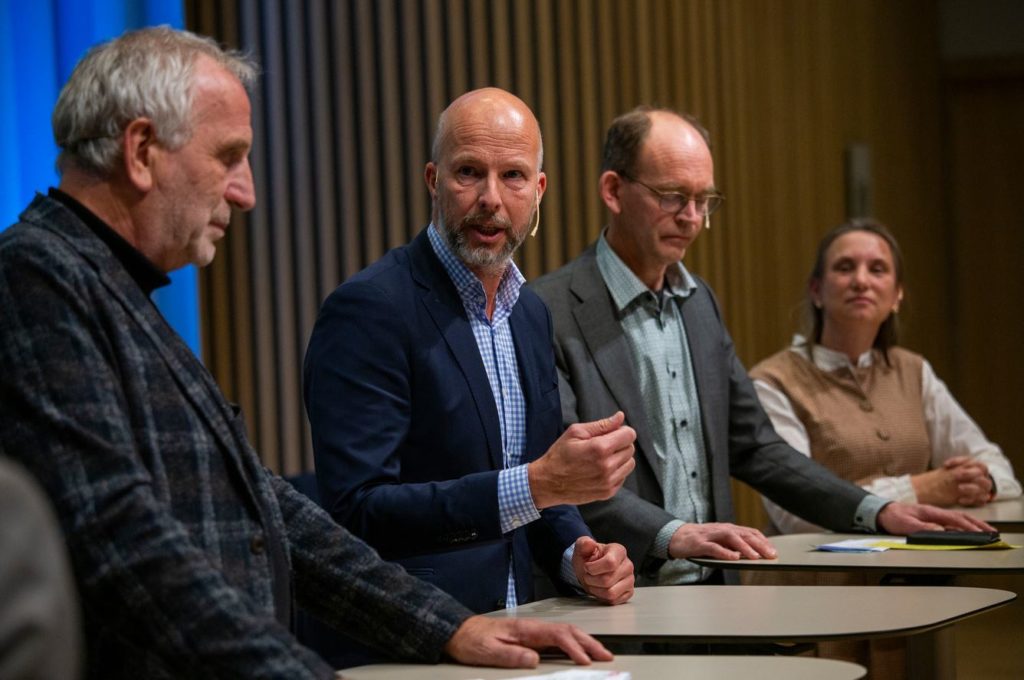
Using craftsmanship
Eline Vedder (CDA) – who is a livestock farmer herself – calls for a future-proof agricultural sector. ‘We farmers feel there is room to achieve this. There is sufficient craftsmanship in the Netherlands.’ She envisions a role for farmers within Europe. ‘Every country should do what it is good at.’ Pieter Grinwis (ChristenUnie) agrees: ‘The Netherlands is good at producing seeds and seed potatoes and should lay our focus there.’
Thom van Campen (VVD) underscored the power of the Dutch farming sector: ‘We have produced good quality food for a low price since the Second World War. That is something I still believe in. But we must do so differently, with a focus on water and air quality.’
After the debate, Heimovaara was still not optimistic that brave leaders would rise together for a long-term vision. ‘At the start, it appeared as if the parties were in agreement. But a little later, the consensus seems far off.’
Source: De Gelderlander/Arnold Winkel

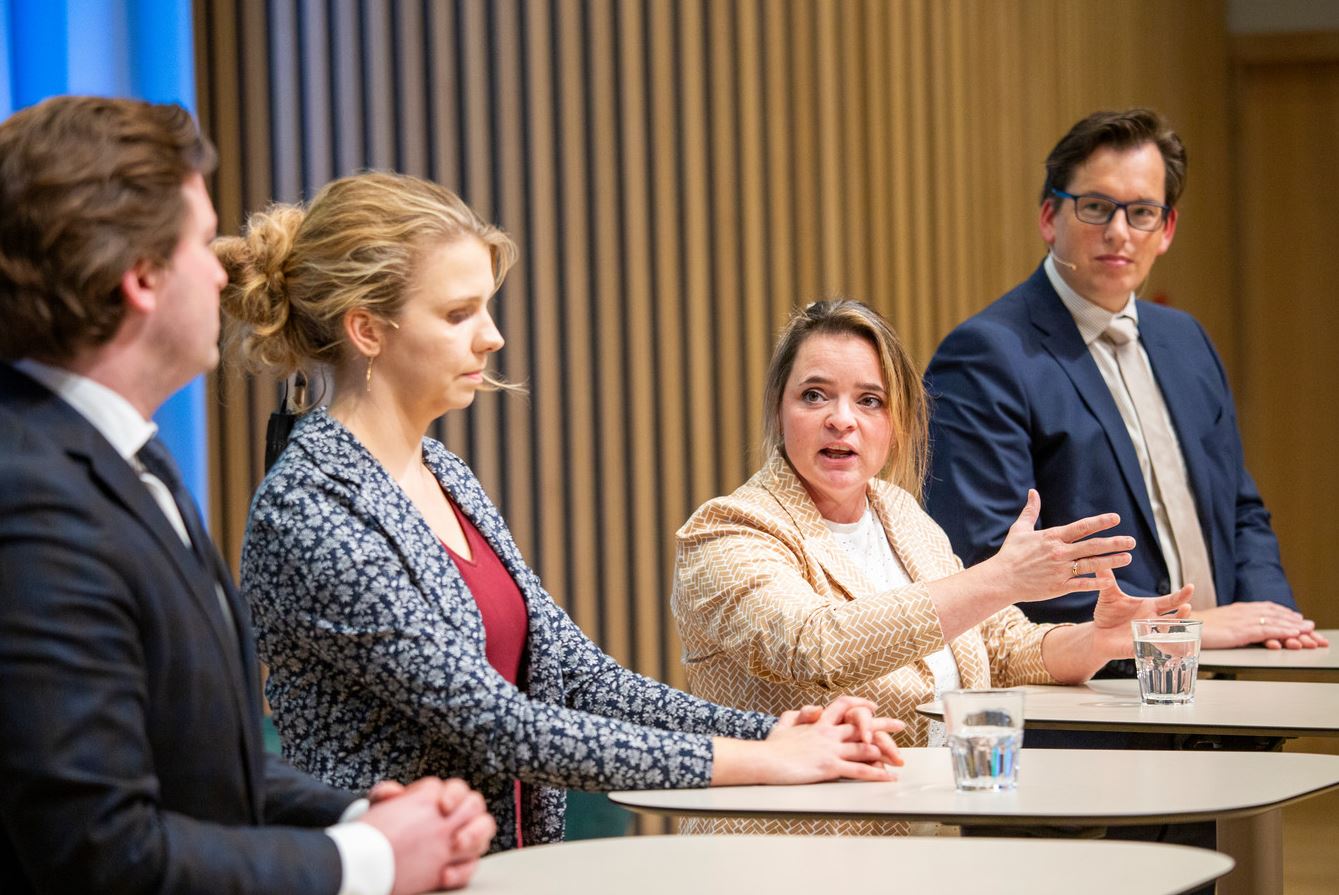 Politici discussiëren tijdens het landbouw- en natuurverkiezingsdebat bij Wageningen University & Research: Van links naar rechts: Thom van Campen (VVD), Eva Akerboom (Partij voor de Dieren), Eline Vedder (CDA) en Pieter Grinwiss (ChristenUnie). Foto Elly Molenaar
Politici discussiëren tijdens het landbouw- en natuurverkiezingsdebat bij Wageningen University & Research: Van links naar rechts: Thom van Campen (VVD), Eva Akerboom (Partij voor de Dieren), Eline Vedder (CDA) en Pieter Grinwiss (ChristenUnie). Foto Elly Molenaar 